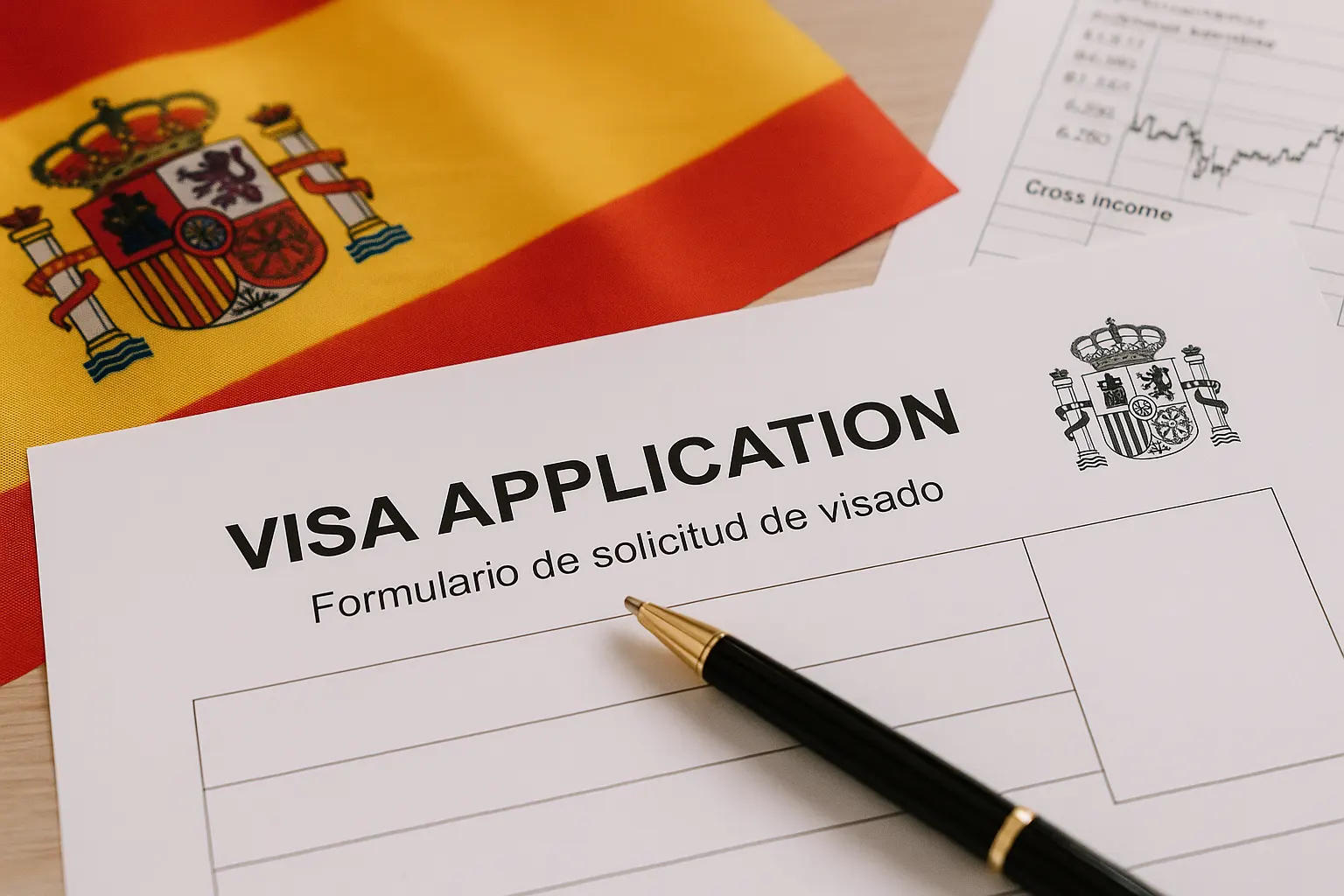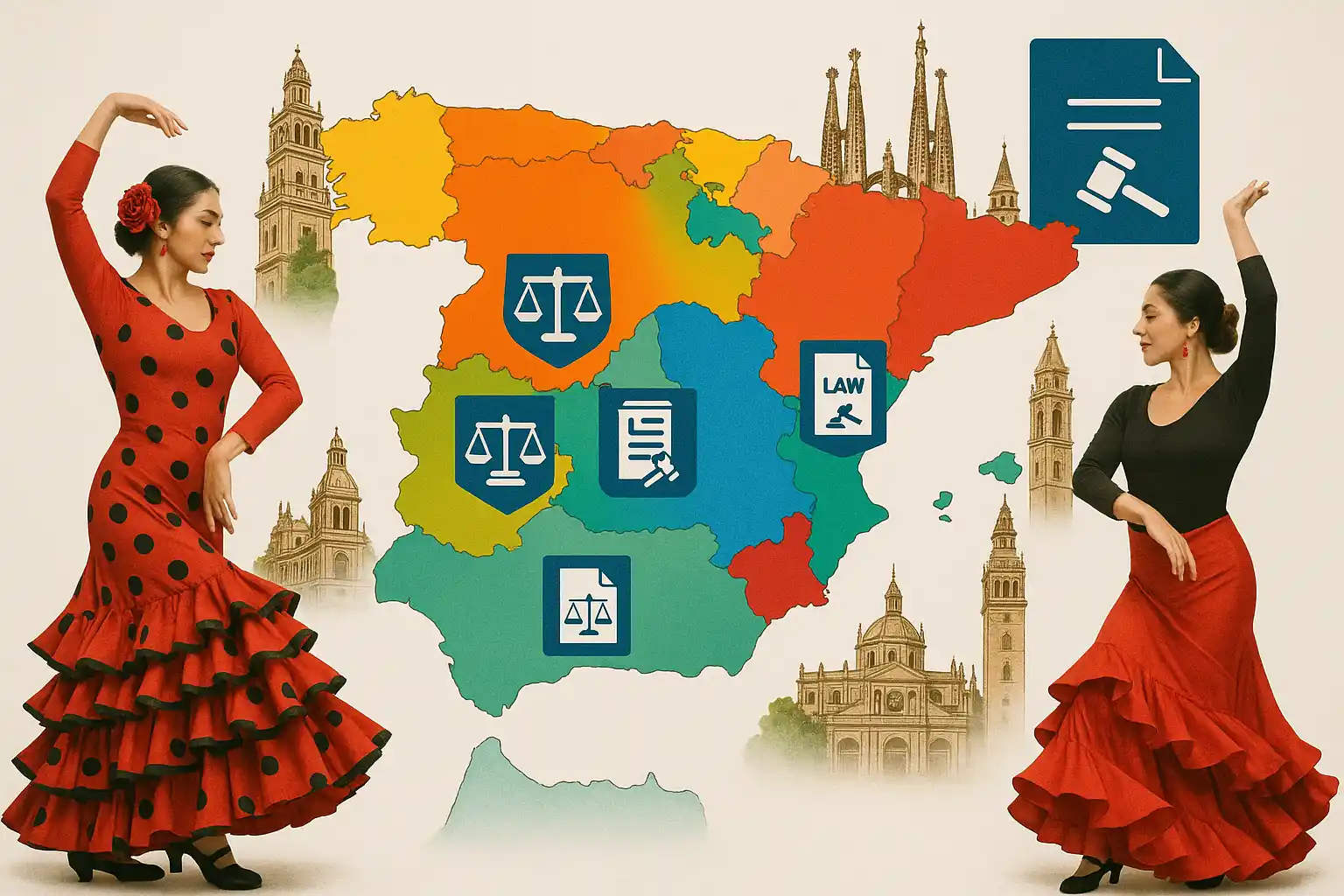Understanding Digital Nomad Visas
A digital nomad visa is a specific type of remote work permit that allows professionals to legally live and work in another country while still being employed by companies or clients outside of that country. This type of visa supports the increasing trend of working from anywhere, eliminating the usual restrictions that come with work permits tied to local jobs.
Eligibility Criteria for Digital Nomad Visas
To qualify for a digital nomad visa, applicants usually need to meet several requirements:
- Minimum income requirement: Most countries have a set amount of monthly or yearly income that applicants must meet to prove they can support themselves financially. This amount varies from country to country. For instance, Spain requires around €2,700 per month, while Portugal has a minimum yearly income requirement of about €3,480.
- Proof of employment or business activity: Applicants need to provide valid contracts that show their remote work arrangements or evidence of owning an active business. In Spain’s case, it’s important to understand different employment models like W2, and 1099 when applying for their digital nomad visa.
- Supporting financial documents: Recent bank statements are required to confirm a steady flow of income.
- Health insurance coverage: Some countries require proof of international health insurance that is valid during the entire stay.
Key Documents Needed for Application
When applying for a digital nomad visa, it’s essential to gather the following documents:
- Employment contracts or proof of freelance/business activity
- Bank statements covering recent months
- Valid passport and identification
- Health insurance certificates
Understanding these requirements is crucial for individuals who want to transition from holding a digital nomad visa to obtaining citizenship in the host country. Meeting these criteria demonstrates legal and financial credibility within the country where they are residing.
For example, if you plan on bringing your family along with you on a digital nomad visa, there are specific guidelines available for securing a Spain Digital Nomad Visa specifically designed for family members. These guidelines can also provide valuable insights into accessing quality education and healthcare services while living in Spain.
Exploring Residency Requirements for Digital Nomads
Digital nomads often begin their international stay with a temporary residency permit, which grants legal permission to live and work remotely in a host country for a specified period. This status is typically limited in duration—commonly ranging from six months to two years—and may be renewable depending on local immigration laws. Temporary residency serves as the foundation for establishing a more permanent presence abroad.
Permanent residency differs by offering an indefinite right to reside in the country without the need for frequent visa renewals. Achieving permanent residency usually demands fulfilling certain criteria, such as continuous residence, financial stability, and compliance with local regulations over a defined period. For digital nomads, this means maintaining their legal status without significant interruptions.
Understanding these distinctions enables digital nomads to strategically plan their stay, ensuring they meet the eligibility benchmarks that pave the way from temporary permits toward permanent residency—and eventually citizenship—in their chosen destination.
Key aspects related to residency requirements include:
- Length of stay: Most countries require between 1 to 5 years of continuous residence before granting permanent residency.
- Continuous residence: Maintaining uninterrupted physical presence is crucial; extended absences can reset the qualifying period or jeopardize eligibility.
- Documented compliance: Keep thorough records of stays, employment contracts, and tax filings to demonstrate adherence.
Pathways from Digital Nomad Visa to Citizenship
Digital nomads often begin their journey with a temporary visa, such as the one that permits remote work in Spain for Canadians, which allows them to work remotely for a fixed period. The transition from this initial status to full citizenship involves several clearly defined stages.
Step-by-step progression:
- Temporary Visa Acquisition: Secure a digital nomad visa by meeting income thresholds and submitting required documentation such as employment contracts and bank statements.
- Residency Compliance: Maintain continuous residence in the host country, abiding by visa conditions and avoiding prolonged absences.
- Permanent Residency Application: After fulfilling a minimum residency period—usually between 1 and 5 years—apply for permanent residency. This stage signifies legal recognition as a long-term resident.
- Naturalization Process Initiation: Upon holding permanent residency for the required duration, initiate the naturalization process to apply for citizenship.
Applicants face key requirements at each stage, notably:
- Language Proficiency: Demonstrating command of the host country’s official language(s) through standardized tests such as those outlined in this English proficiency information guide.
- Cultural Knowledge Exams: Passing assessments on national history, laws, and civic responsibilities.
- Background Checks: Providing clean criminal records and proof of financial stability.
The application process demands careful preparation of paperwork and adherence to deadlines. Meeting eligibility criteria consistently increases chances of approval. Understanding these milestones equips digital nomads with a practical roadmap from temporary stay to becoming naturalized citizens.
Country-Specific Options That Lead to Citizenship
Digital nomads often seek countries offering both flexible visa options and clear pathways to citizenship. Understanding these countries’ specific requirements is essential for planning a long-term stay beyond the digital nomad visa period.
Spain
- Visa Duration and Renewal: Spain’s digital nomad visa allows multiple renewals, supporting extended residence. However, it’s crucial to understand the implications of losing a client while on this visa. For instance, losing a client can affect your Spain digital nomad visa, so it’s important to stay compliant with remote work requirements.
- Pathway to Citizenship: Requires 10 years of continuous legal residence before applying for citizenship.
- Can Spain digital nomad visa lead to citizenship? Indirectly, yes. The digital nomad visa serves as a temporary residence permit that can be renewed, eventually enabling eligibility for permanent residency and subsequently, citizenship.
- Key Considerations: Maintaining uninterrupted residency and meeting language and cultural integration criteria are mandatory.
Portugal
- Residency Duration: Citizenship eligibility after 5 years of legal residence.
- Income Requirement: Minimum income threshold around €3,480 per month to qualify for the digital nomad visa.
- Benefits: Shorter timeline compared to Spain; attractive tax incentives may apply during the residency period.
Greece
- Duration for Citizenship: Longer path requiring 12 years of residence before naturalization.
- Permanent Residency Option: Available earlier than citizenship, allowing extended stays and work rights.
- Visa Flexibility: Digital nomad visa holders can renew permits while working remotely.
Other Notable Mentions
- Italy offers innovative visa schemes but typically requires longer residency periods (upwards of 10 years) before citizenship applications. Digital nomad visas in Italy are emerging but currently less defined regarding direct routes to citizenship.
Each country’s framework balances visa accessibility with rigorous naturalization standards. Applicants should evaluate which pathway aligns best with their long-term mobility goals, financial capacity, and willingness to integrate culturally and linguistically into their chosen host nation.
Practical Considerations: Taxation, Family Inclusion, and Benefits Under Digital Nomad Visas
Digital nomads must consider several practical aspects beyond visa approval to ensure a smooth transition and sustainable stay in their host country.
1. Taxation
Taxation represents a critical area requiring professional guidance. Each country enforces unique tax regulations on foreign residents and remote workers. Engaging a tax advisor for nomads familiar with international taxation laws is essential. Such experts help clarify obligations like income declaration, social security contributions, potential double taxation treaties, and reporting requirements. For example, NIM Immigration Lawyers provide integrated services combining visa procurement with tailored tax advice, simplifying compliance and optimizing financial outcomes.
2. Family inclusion
Family inclusion forms another key consideration. Many digital nomad visas include a family visas option allowing applicants to bring spouses or dependents. These provisions vary widely:
- Some countries permit immediate family members to obtain dependent visas with work or study rights.
- Others impose additional income thresholds or documentation to prove familial relationships.
- Certain schemes facilitate family reunification after initial visa issuance.
Understanding these options early supports informed planning for those relocating with loved ones.
3. Additional benefits
Additional benefits available under digital nomad visas often include access to local healthcare systems, eligibility for certain public services, and the ability to open bank accounts or sign rental agreements—factors impacting quality of life.
Addressing taxation complexities alongside family integration enhances the long-term viability of living abroad under a digital nomad visa. Expert legal and financial counsel plays an indispensable role in navigating these intertwined challenges effectively.
Challenges and Important Considerations in the Process
Applicants pursuing citizenship through a digital nomad visa often encounter requirements challenges and legal hurdles that can complicate their journey. Understanding these obstacles early helps in preparing effective strategies.
Challenges
- Complex Documentation: Visa and residency applications demand extensive paperwork, including proof of income, health insurance, and background checks. Incomplete or inconsistent documentation frequently causes delays or rejections.
- Changing Immigration Policies: Governments may alter visa conditions or residency requirements with little notice. Staying informed about legal updates is essential to maintain compliance and avoid disruptions.
- Language Barriers: Many countries require applicants to demonstrate proficiency in the national language. Failing language tests can stall the naturalization process, making early preparation crucial.
- Continuous Residence Requirements: Maintaining uninterrupted residence over several years is often mandatory for permanent residency or citizenship. Travel restrictions or personal emergencies that cause prolonged absences risk invalidating eligibility.
- Taxation Complexity: Navigating tax obligations across jurisdictions can be confusing without professional guidance. Misunderstanding tax residency rules may lead to unexpected liabilities or penalties.
Practical tips to overcome these challenges include:
- Engaging specialized immigration lawyers who understand local nuances and evolving policies.
- Utilizing online legal services for streamlined document management and expert consultations.
- Preparing for language and cultural exams well in advance.
- Planning travel carefully to fulfill continuous residence criteria.
- Consulting tax advisors knowledgeable about cross-border regulations.
Awareness of these common pitfalls enhances the likelihood of a smooth transition from digital nomad status to full citizenship.
Role of Legal Experts and Online Platforms in Simplifying the Journey
The process of transitioning from a digital nomad visa to citizenship involves complex legal requirements and documentation. This is where specialized immigration lawyers in Spain come into play. They are crucial in handling these complexities, ensuring that applicants meet eligibility criteria, submit accurate paperwork, and adhere to deadlines, thereby significantly reducing the chances of rejection.
The Role of Immigration Lawyers
Immigration lawyers have a deep understanding of the legal intricacies involved in the visa-to-citizenship process. Their expertise includes:
- Eligibility Assessment: Evaluating whether an applicant qualifies for permanent residency or citizenship based on specific criteria set by Spanish immigration authorities.
- Document Preparation: Assisting applicants in gathering and organizing all necessary documents required for their applications.
- Deadline Management: Keeping track of important deadlines related to visa renewals, residency applications, and citizenship petitions.
By leveraging their knowledge and experience, immigration lawyers can navigate through potential pitfalls and ensure a smoother journey towards achieving long-term residency or citizenship goals.
Modern Legal Assistance for Digital Nomads
The online advice platform NIM Lawyers Spain, a Barcelona-based service, exemplifies modern legal assistance tailored for digital nomads. This platform offers:
- Personalized consultations without the need for physical visits
- Streamlined communication through electronic file management
- Efficient case analysis focused on individual circumstances
Such services allow applicants to receive expert guidance regardless of their location, facilitating smoother transitions through each stage—from initial visa application to permanent residency and eventual citizenship.
Tailored Pathways for Success
Thorough case analysis conducted by these legal experts identifies the most suitable pathways based on factors like country-specific regulations, income levels, and family inclusion options. This tailored approach improves success rates and minimizes unnecessary delays or complications.
Engaging with immigration lawyers through online platforms provides clarity on complex legal frameworks and helps digital nomads plan strategically for long-term residency goals in Spain or other preferred countries.
Conclusion
Choosing the digital nomad lifestyle is more than just a temporary adventure; it can be a long-term strategy for personal growth and freedom to travel. The journey from a digital nomad visa to citizenship opens doors to settle down while still enjoying the ability to move around the world. Learning about options like the Spain digital nomad visa to citizenship gives us insight into the practical steps and requirements needed for this process.
Here are some key takeaways:
- Understand the importance of planning and seeking professional help.
- Recognize how a digital nomad visa with path to citizenship can turn temporary work into a permanent home.
- Stay open to future opportunities that come from navigating these changing immigration systems.
This pathway explains how a digital nomad visa leading to citizenship provides a bridge between remote work flexibility and full integration in a new country.














